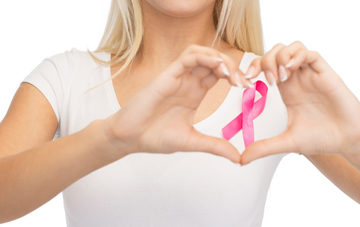
NBCAM is an annual international health campaign founded in October, 1985 as a partnership between American Cancer Society and the pharmaceutical division of Imperial Chemical Industries. The aim of the campaign is to raise awareness about the importance of early detection of breast cancer and encourages communities, organizations, families, and individuals to get involved. The campaign also spreads the word about mammograms, the most effective diagnostic modality to detect breast cancer.
Thanks to such awareness programs, many women are surviving this particular disease as they are more familiar about early detection procedures and how symptoms can be managed successfully with advanced treatments. If breast cancer is detected early, it is easier to treat.
You don’t have to focus on a particular month to aware about the breast cancer. There are few steps that you can take towards breast cancer prevention, apart from a factor such as family history which cannot be changed. Making these lifestyle changes can lower your risk:
- Limit alcohol intake: Based on research on the effect of alcohol on breast cancer risk, it is recommended that you take less than one drink per day. The more alcohol you drink, the greater would be your risk of developing cancer.
- Quit smoking: Smoking is one of the worst things you can do for your overall health.
- Maintain a healthy weight: Being overweight or obese increases the risk of breast cancer. This is especially true if obesity occurs later in life, particularly after menopause.
- Stay physically active: The Department of Health and Human Services recommends at least 150 minutes a week of moderate aerobic activity or 75 minutes of vigorous aerobic activity weekly, plus strength training at least twice a week for healthy adults.
- Breastfeed: The longer you breastfeed your child, the greater the protective effect will be.
- Eat lots of fruits and vegetables: A healthy diet can prevent the occurrence of many diseases.
- Avoid birth control pills and unnecessary hormone tablets: According to a recent report in the Independent, contraceptive pills quadruple levels of synthetic oestrogen and progesterone hormones which are believed to play a part in breast cancer growth.
Detection of breast cancer in the localized stage is “treatable and survivable”. Consult your doctor if you notice any changes in your breasts, such as a new lump or skin changes.